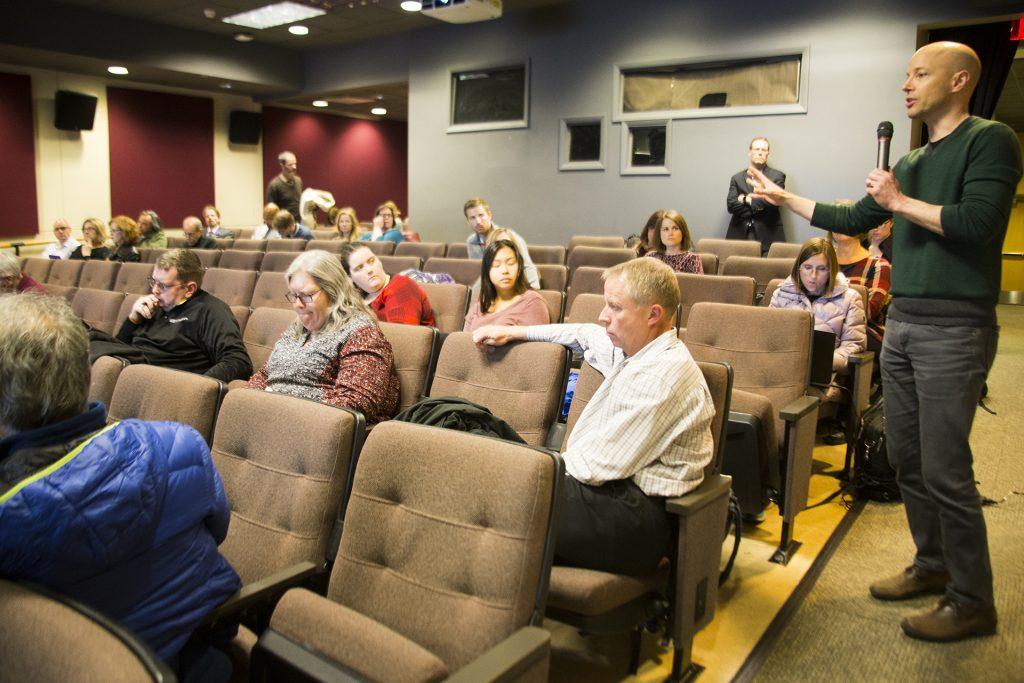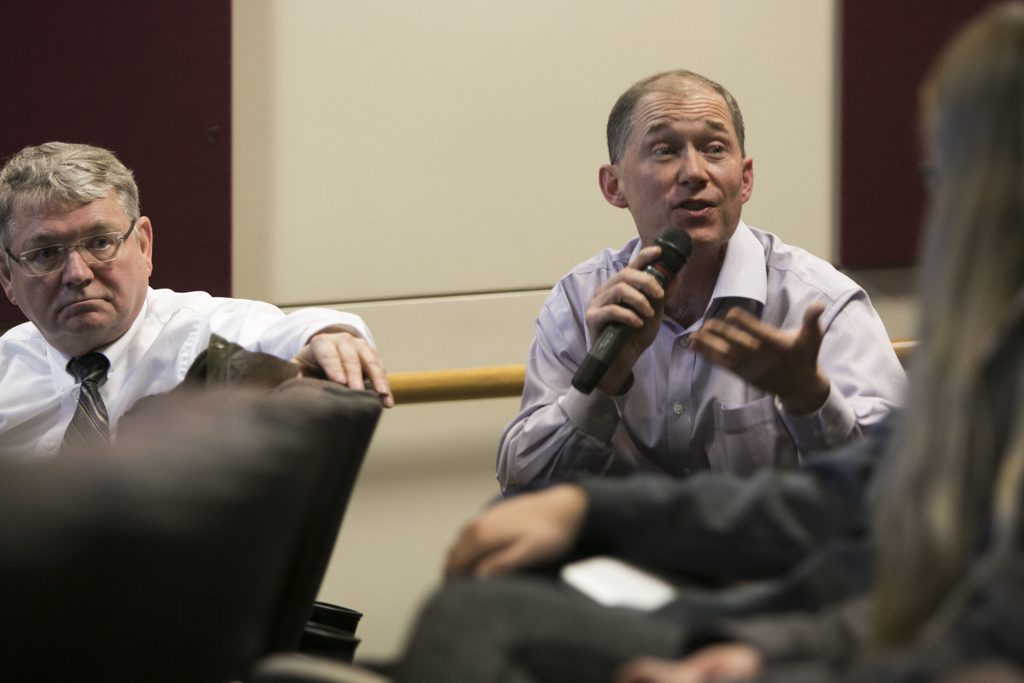Campus community members stressed their concern about limited resources at an open forum Monday.
The forum was part of Phase II of the UI’s two-phase Academic Organizational Structure 2020 initiative to restructure units across the university in the next few years. The process is guided on how the UI can stand out as a research institution while also serving the state and students.
In January, then-provost P. Barry Butler requested the Council of Deans to conduct a survey to determine what changes need to be made to the UI academic structure.
Phase II, which is ongoing, began in August. A Steering Committee of 13 faculty and administrators is working to gather opinions from the campus community by hosting forums and scheduling meetings with campus groups.
UI Associate Professor of chemistry Chris Cheatum noted one concern at the start of the meeting that the future restructuring of the colleges could cost faculty and department jobs.
“The elephant in the room is to be successful in some of these grand challenges, we’re going to have to decide what we’re not going to do …” Cheatum said. “We’re talking about real people’s real departments that might diminish or go away in order to make that possible.”

One recurring topic was encouraging the UI to focus efforts on what the school does well, striking a debate between what the university should focus on: research or instruction.
Cheatum said research is something the UI offers that sets the institution apart from cheaper community colleges.
“Part of what makes a research university the kind of place that people want to come to is the ability to do research,” he said. “When students get the opportunity to work in someone’s lab, to work with a world leader in their field … we have to acknowledge that education probably does not involve standing in front of 300 people to provide entertainment.”
Others thought the UI should focus more on students and providing students a well-rounded classroom education through general-education requirements.
RELATED: UI striving for perfect foresight in 2020
Dan Matheson, the director of the Sport and Recreation Management program, advocated for more flexible online classes for students and also said the UI should be more focused on working together.
“I think to move forward embrace the values of the 21st century on campus, we all need to think about how to work together and not be opposing one another — the academic side or the research side,” he said.
Kathryn Hall, the director of curriculum & academic policy in the College of Liberal Arts & Sciences, suggested the UI prioritize creating a more transparent budget.
“I aspire that we pledge that everyone knows what the budget is, that everyone understands the budget, that everyone knows what their part in supporting the budget is,” she said. “Whether its credit hours, the major hours, we start with the budget and make it transparent.”
UI Pappajohn Education Center Director Tom Rice, the chair of the Phase II Steering Committee, said the responses at the forum are encouraging for future university restructuring conversations.
“I was happy with the amount of input, and I am appreciative of how aware people seem to be about how difficult it is to distinguish ourselves given our little resources,” he said. “I also appreciate people’s willingness to stand up and say, ‘Whatever the less, we have to try.’ ”
Remaining Phase II forums
Dec. 4 6:30-8 p.m. Phillips Hall Auditorium
Dec. 5 11-11:50 a.m. Medical Alumni Auditorium



